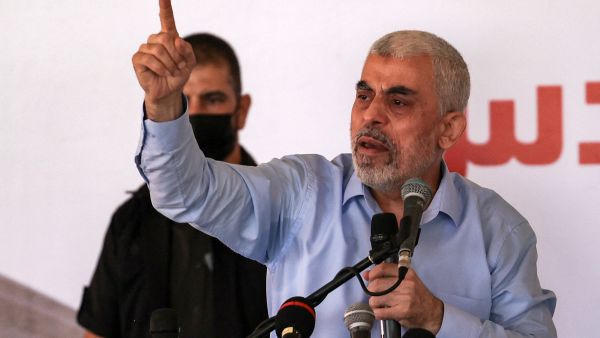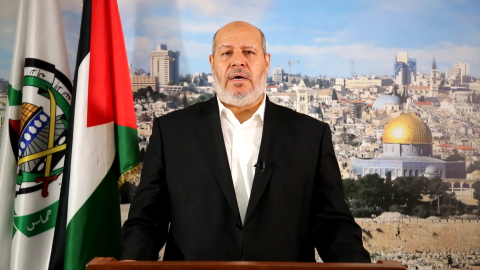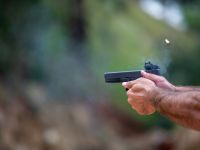ALBAWABA - Hamas political bureau chief Yahya Sinwar prophesied his own martyrdom in his 2004 book "Thorns and Cloves." He said, "Now the time has come, O mother, for I saw myself storming their position, killing them like sheep, then becoming a martyr, and I saw myself in the hands of the Messenger of Allah in the Gardens of Bliss calling out to me, 'Welcome!'"
Sinwar's path has been characterized by a notable increase in notoriety among the Palestinian resistance, from his incarceration in 2004 to his current proclamation of martyrdom on October 18, 2024, after battles with Israeli soldiers.
Sinwar was born in 1962 in the second-largest city in Gaza, the Khan Younis refugee camp. He attended Khan Younis Secondary School for Boys for his early schooling before graduating from the Islamic University of Gaza with a master's degree in Arabic studies.
As a college student, Sinwar's dedication to resistance was shown when he served as the leader of Hamas' student organization, the "Islamic Bloc." Due to his activities, he was initially arrested in 1982 and placed in administrative jail for four months.
He was arrested once again in 1985 for forming Hamas's internal security apparatus, known as "Mujd," and again three years later for helping to form the movement's first military arm, known as "the Palestinian Mujahideen." Four life sentences were the result of this.
Sinwar was subjected to prolonged periods of solitary confinement throughout his 23 years in Israeli jails. He committed himself to learning Hebrew and wrote a number of books on politics and security, such as "Hamas: The Experience and Error" and "Thorns and Cloves." Additionally, he translated books into Hebrew, including "Shabak Among Divisions" by Karmi Gilon, the former head of Shin Bet.
Sinwar's health worsened at "Eshel" jail, necessitating an urgent transfer for surgery to remove a brain tumor, even though he had refused medical care in order to avoid feeling obliged. This decision was made in the midst of ongoing discussions with the Israeli government that he was spearheading on behalf of Hamas.
Because of his steadfast dedication to the cause, Sinwar's legacy continues to influence the narrative around Palestinian resistance.










